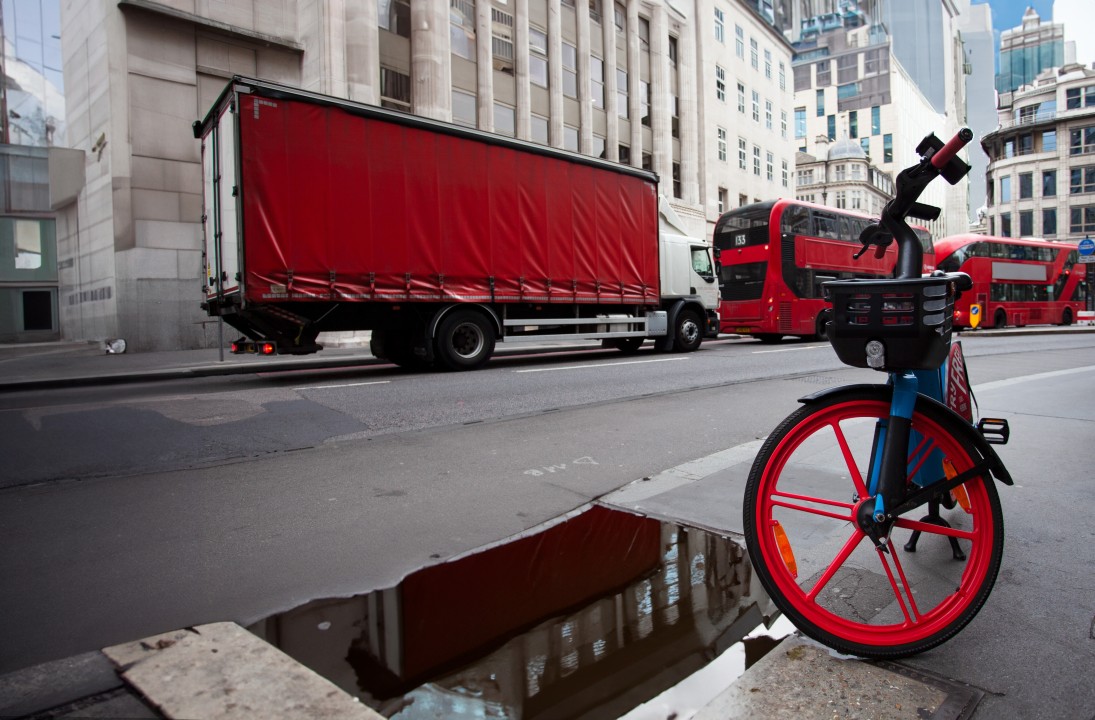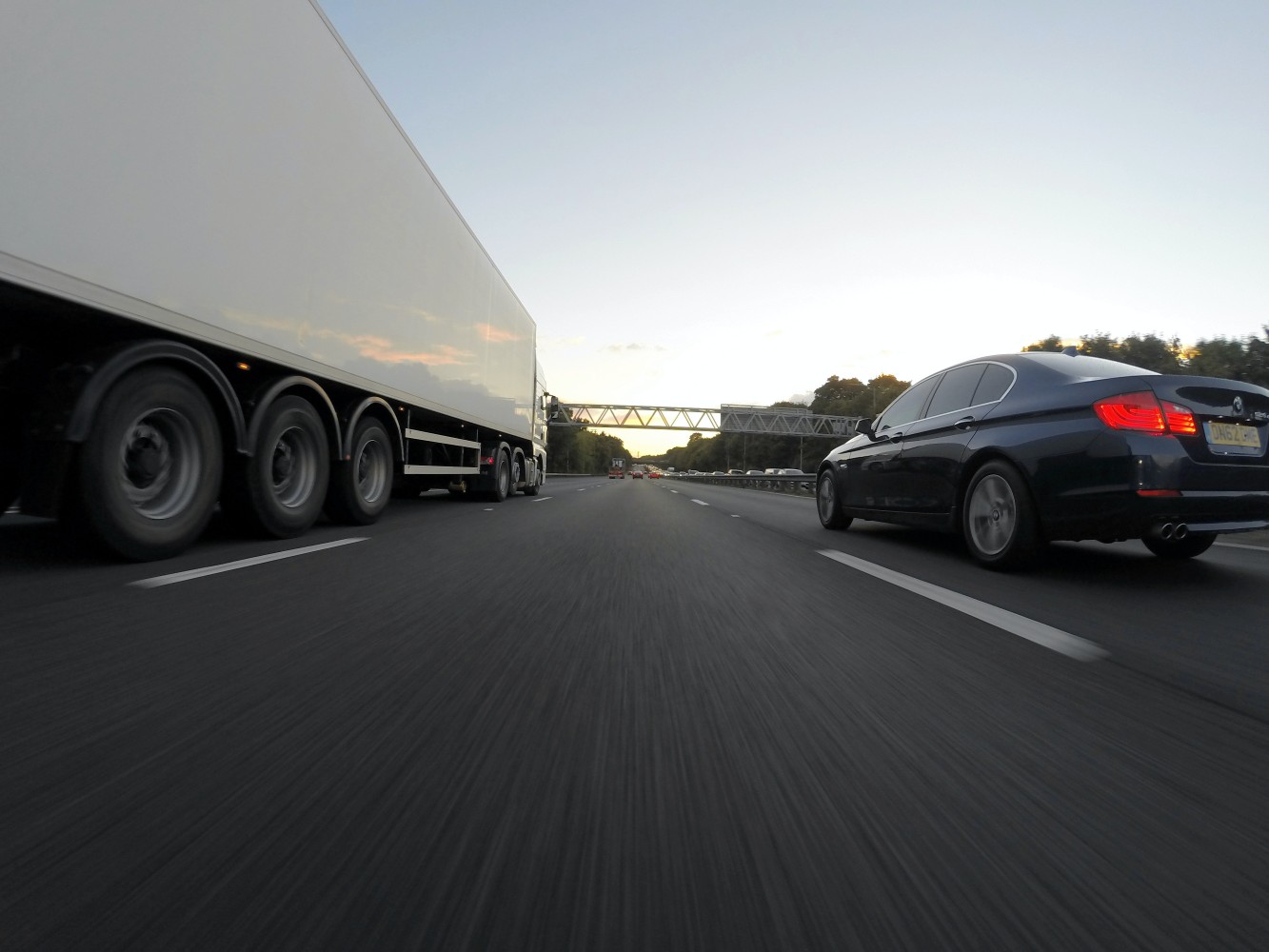
Susie Jones
Pět vyvrácených mýtů o nákladní dopravě
Vytvořeno: 19.08.2024
•
Aktualizováno: 19.08.2024
Řízení kamionů je již po staletí základem globálního obchodu - rozvážejí zboží a základní potřeby po celém světě. Navzdory své zásadní roli však byla nákladní doprava dlouho opředena mýty a mylnými představami.
Ačkoli některé z těchto mýtů lze brát s rezervou, některé mohou poškodit odvětví nákladní dopravy a ty, kteří v něm pracují. Proto je nanejvýš důležité tyto mylné představy vyvrátit, aby řízení nákladních vozidel zůstalo atraktivní volbou povolání i pro budoucí generace. Zeptali jsme se naší komunity řidičů na Facebooku na některé z největších mýtů, které během své kariéry slyšeli.
1. Řidiči kamionů sedí celý den
"Řidiči kamionů celý den jen sedí." Věta, kterou běžně slýchává řidič kamionu Luke.
Svět nákladní dopravy je víc než jen řízení. Řidiči kamionů často spolupracují s ostatními na terminálech, v docích a skladech při vykládání a nakládání nákladu. Ani za volantem není vše hladké. Řidiči kamionů se musí soustředit na manévrování se svými vozidly a musí dodržovat přísné předpisy pro tachografy. Dobrá znalost oblastí, kde mohou a nemohou jezdit, je nezbytná, stejně jako znalost možných nebezpečí.
2. Všichni řidiči kamionů jsou muži
Jedná se o zastaralý stereotyp, který neodráží realitu moderní kamionové dopravy. V poslední době došlo k výraznému posunu v poměru mužů a žen mezi řidiči kamionů. V roce 2021 tvořily řidičky pouhé 1 % z 315 000 řidičů nákladních automobilů ve Velké Británii. Tento počet se však rok od roku zvyšuje, protože odvětví se vyvíjí a přijímá inkluzivitu. Řidiči jako Jodi Smith jsou neocenitelnými zastánci žen v oboru. Jodi dokumentuje své zkušenosti s řízením kamionů na internetu a inspiruje tak ostatní, aby usedli za volant.
3. Nákladní auto může řídit kdokoli
Mnozí se domnívají, že když mohou řídit osobní automobil, mohou řídit i nákladní automobil. Řízení nákladního automobilu však vyžaduje jedinečné dovednosti, které nemusí být vhodné pro každého. Řízení nákladního automobilu vyžaduje získání osvědčení o profesní způsobilosti řidiče (CPC). Pro získání CPC musí řidiči absolvovat pět zkoušek:
Teorie
Případová studie
Cvičení v terénu
Jízda na silnici
Praktické ukázky
Řízení kamionu navíc vyžaduje životní styl, který není pro každého - dlouhé hodiny na cestách, které často přinášejí nečekané problémy.
4. Brzdná dráha
"Řidiči osobních automobilů si myslí, že brzdná dráha nákladního vozidla je stejná jako u osobního automobilu", slyšel řidič nákladního vozidla Paul už příliš mnohokrát.
Brzdná dráha nákladního automobilu se výrazně liší od brzdné dráhy osobního automobilu, a to z několika důvodů: - Hmotnost: celková hmotnost naloženého nákladního automobilu je vyšší než u běžného osobního automobilu, což znamená, že ke zpomalení a zastavení potřebuje větší sílu.
- Mechanika: brzdový systém nákladního vozidla je přizpůsoben těžkým nákladům, což znamená, že má větší a robustnější nápravy a brzdové komponenty - výsledkem je delší reakční doba a delší brzdná dráha.
Při rychlosti 60 km/h potřebuje nákladní automobil k zabrzdění 132 m oproti 73 m u osobního automobilu, což poukazuje na to, jak důležité je nechat si při intenzivním brzdění mezi sebou a nákladním automobilem dostatečný prostor.

5. Řidiči kamionů jsou špinaví
Řidiči kamionů jsou v průběhu let považováni za špinavé a líné, což je nespravedlivé zobecnění. Mnoho řidičů dálkové dopravy tráví spoustu času mimo domov a ve svých kabinách - to znamená, že jejich hygiena a čistota kabiny je prioritou.
Pro lepší pochopení profese řidiče nákladních vozidel je důležité vyvrátit mýty a mylné představy o této profesi. Vyvrácením některých rozšířených mýtů vytvoříme atraktivnější odvětví pro budoucí generace a zvýšíme povědomí o řidičích nákladních automobilů jako o vysoce kvalifikované profesi, která hraje důležitou roli v naší ekonomice.
Je doprava kamionem osamělá?
Než začnete uvažovat o kariéře řidiče nákladního vozidla, je důležité si ujasnit, co tato práce obnáší. Problémem mnoha řidičů kamionů je vyrovnávání se s osamělostí - dlouhé hodiny na cestách s malou nebo žádnou komunikací jsou pro některé obtížné, ale pro jiné jsou snem.
Kromě toho se na mnohých může podepsat čas strávený mimo své blízké. Řidiči však mohou s přáteli a rodinou snadněji komunikovat prostřednictvím telefonu nebo videohovoru. Pro řidiče kamionů je také k dispozici spousta fór a užitečných rad, které jim pomohou zmírnit osamělost.
Může mít řidič kamionu druhé zaměstnání?
Vzhledem k tomu, že Velká Británie prochází krizí životních nákladů, stále více řidičů uvažuje o druhém zaměstnání. Vedlejší zaměstnání však přináší problémy a rizika, zejména ve světě nákladní dopravy. Než se řidiči pustí do dalšího zaměstnávání, musí zvážit, zda v jejich společnosti existuje politika vedlejšího zaměstnávání.
Při vytváření politiky vedlejšího zaměstnávání by společnosti a provozovatelé měli zvážit dopady na výkonnost, docházku a únavu řidičů. Nemluvě o dodržování pravidel o pracovní době řidičů.


